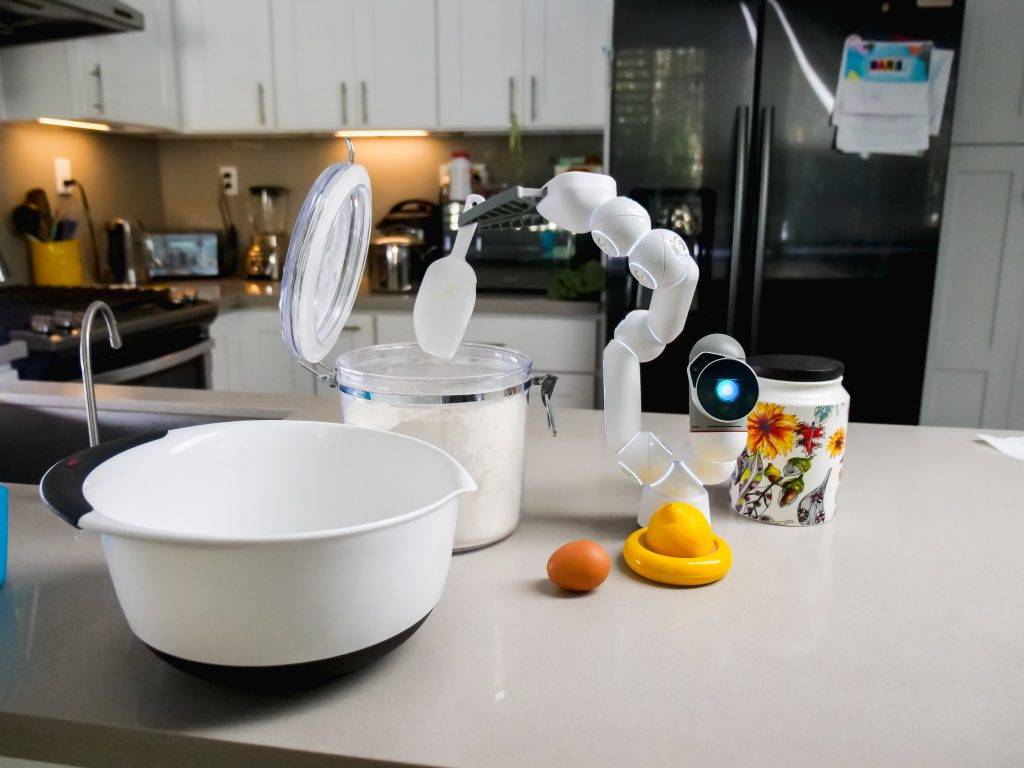In today’s fast-paced world, where time is a precious commodity, incorporating artificial intelligence (AI) and machine learning into our daily lives has changed the game. Smart appliances equipped with these advanced technologies redefine how we manage our homes. In this blog post, we’ll take a deep dive into how AI and machine learning can enhance the capabilities of smart appliances, and to make it more relevant, we’ll highlight a real-life example: an AI-powered washing machine. We’ll explore how these smart devices can optimize wash cycles and energy consumption while underscoring their convenience and time-saving benefits to homeowners.
Enhance device capabilities with artificial intelligence and machine learning:
Imagine having equipment that adapts to your needs, learns your preferences, and handles daily tasks while reducing energy consumption and maintenance requirements. This is exactly what artificial intelligence and machine learning bring to the table:
- Predictive maintenance: Real-life AI applications like those in smart refrigerators can predict when your equipment will need care. This means scheduling repairs before a breakdown disrupts your daily life.
- Adaptive settings: Smart home appliances with artificial intelligence can learn your habits. Take smart thermostats, for example. It retains when you want to adjust the temperature and optimizes settings to keep you comfortable while saving energy.
- Automation: Imagine your coffee machine brewing your favourite cup of coffee as soon as the alarm goes off in the morning or your oven automatically preheating before you even walk into the kitchen. Artificial intelligence can automate these tasks for you.
Artificial Intelligence Powered Washing Machine: Optimizing Cycles and Energy Consumption:
Now, let’s zoom in on an AI washing machine, such as the Samsung AI Laundry Device, and see how these technologies enhance its functionality:
- Adaptive wash cycles: AI-powered washing machines use sensors to evaluate load size, fabric type and dirt level in real life. It then customizes the wash cycle for the most efficient and effective cleaning.
- Energy optimization: Artificial intelligence algorithms calculate the perfect water temperature and cycle duration to optimize energy consumption. This not only saves energy but also reduces utility bills.
- Troubleshooting: If there is a problem during the washing process, AI can identify and notify you in time and even make minor repairs in some cases.

Improve convenience and save time:
The true beauty of AI-powered smart appliances lies in the convenience and time savings they provide homeowners:
- Remote Control: Real-life app allows you to control and monitor your smart devices from your smartphone. You can start a load of laundry at the office or preheat the oven before getting home.
- Voice Integration: Imagine using voice commands to control your devices. Many smart devices, such as ovens and thermostats, work seamlessly with voice assistants like Amazon Alexa and Google Assistant, increasing convenience.
- Self-learning: These devices are not static. They continuously learn from your behaviour and adapt to your preferences over time.

Realize benefits:
The benefits of AI-powered smart devices are not limited to the realm of science fiction; they are real and impactful in our daily lives:
- Convenience: You can easily control and manage your devices, freeing time for more meaningful activities.
- Efficiency: AI optimization ensures efficient operations and reduces energy and resource consumption, lowering utility bills.
- Improved quality of life: With artificial intelligence handling daily tasks, you can focus on what matters, whether spending quality time with loved ones, pursuing a passion, or simply enjoying well-earned relaxation.
To sum up, artificial intelligence and machine learning are ushering in a new era of convenience and efficiency through smart home appliances. AI-powered washing machines and other smart devices epitomize these technologies’ convenience and time-saving benefits. Integrating smart technology into our daily lives makes our homes more adaptable, efficient, and user-friendly, ultimately improving our quality of life.


